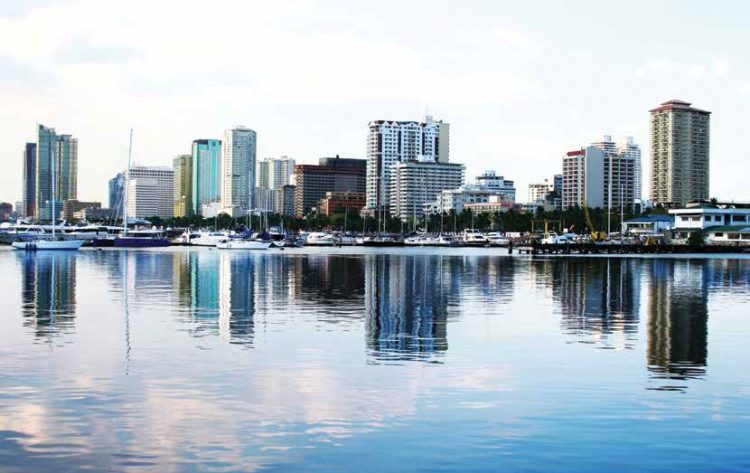Matt Hurst was on the front lines in Macau for the openings of Sands, Wynn and City of Dreams. He’s working for Kazuo Okada in the Philippines now, where he believes he’s got the category-killer.
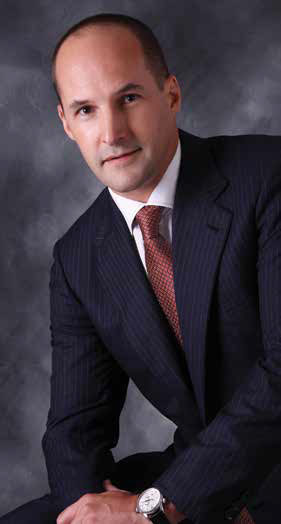
Matt Hurst one of the top guns in machine gaming in Macau for the better part of a decade, quit the booming Chinese gambling enclave the end of last year for sultry Manila and his “dream job,” as he calls it, running the casino that will be the largest in the Philippines when it opens next year as the anchor of Kazuo Okada’s US$2 billion Manila Bay Resorts.
Manila Bay Resorts will encompass a full 44 of Entertainment City’s 120 hectares when it’s built out—the third of the four IRs licensed for the government-sponsored leisure district and the biggest of them ultimately—“an integrated resort that’s going to stand shoulder to shoulder with anything in Asia or the world,” says Mr Hurst. The first of its three phases will feature 1,000 hotel rooms, a nightclub, a domed pool and Vegas-style day club, 22 restaurants, a spa, significant meetings and exhibition space and 7,500 square meters of high end retail, all of it set against a dramatic outdoor display of dancing fountains.
Plans for the 30,000-square-meter casino call for 3,000 machine games and 500 table games. Mr Hurst will be in charge of them all. As executive vice president— Casino Operations and Marketing for MBR’s operating company, Tiger Resort, Leisure and Entertainment, his responsibilities range from strategic planning and development to mass and VIP marketing, advertising, branding, public relations and customer service.
A “dream job,” indeed, and he’s amassed a wealth of experience in preparation for it, dating back to Sky City Auckland in the Harrah’s days. He came to Macau as a senior shift manager at Sands Macao four months before the casino’s historic May 2004 opening. He was at Wynn Macau for its 2006 opening, serving as director of Slot Operations before helping to open his third Macau resort, Melco Crown’s City of Dreams, where he was vice president— Gaming Machines from May 2008 through November of last year and was instrumental in pioneering concepts such as floor-wide jackpots and dedicated high-limit areas that are now staples of the market.
Inside Asian Gaming caught up with him recently for a wide-ranging discussion of the enormous opportunities awaiting a destination on the scale of Manila Bay Resorts in a country that has presented its premier operators to date with some sizable challenges as well.
IAG: Looking ahead to the big opening in 2015, what are the target markets for Manila Bay Resorts at this point in the planning?
Mr Hurst: In terms of the mass of our numbers we would say 90% of our customers we expect to be locals, 25% of our revenue. The other 10% of the customers will be international customers, and they would represent 75% of our revenue. Targets.
International meaning Chinese?
Chinese, Korean, Japan, Taiwanese, Singapore, Malaysia, Thailand, Indonesia. Have I forgotten anywhere? Vietnam. We’re certainly looking pan-Asia. But clearly there are a lot Chinese customers from Malaysia, from Singapore, from Indonesia. There are Chinese domestic customers. So we need to be on top of what a Chinese customer wants. But mainland China, we’re certainly zeroed in on that. And there’s a lot of potential upside. In the year 2000 there were less than 8,000 mainland Chinese visiting the Philippines. In 2012 it was around 250,000. Last year it was 425,000. This year we’re up 40% already on last year, and that was 70% growth last year. Now that won’t carry on forever. But the upside for when we open at the end of next year is we’re probably looking at 600,000, 700,000, 800,000 Chinese tourists. Then the big game changer—and this is the somewhere between a million- and a billion-dollar question—is if we can get landing visas or visas on arrival in Manila for Chinese. Absolute game-changer. Currently, you need to apply for a visa before you travel to the Philippines and it takes about seven days to process. So it’s a little bit of a pain. My wife and I, she’s Chinese, we didn’t travel to the Philippines until last year. We’ve been to Thailand 15, 20 times. You can get a visa on arrival there. So in terms of convenience and the perception of the whole process it’s a massive thing. If you get visa on arrival Chinese people can go to Manila every weekend if they wanted. They can stay for 30 days probably. It’ll be a lot easier to go to Manila than it will to go to Macau. And when that starts to sink in it’s a phenomenal game-changer for us. I mean, junkets, just think about junkets. They’re going to say, “Hey, you know, we’re chartering a plane, we’re heading off on Friday, why don’t you come down for the weekend?” I don’t have to go through the process, go and get my passport, get my secretary to go down to the consulate, pay some money, all that hassle. So the potential upside is incredible. We’re modeling everything on not getting landing visas. But it’s in everyone’s interest, including the economy of the Philippines. And certainly the Andrew Tans and K.T. Lims and Ricky Razons and Henry Sy and Lawrence Ho, they’re not going to be against pushing through something like landing visas. It helps all of us and helps tourism in the Philippines as well, I mean, massively.
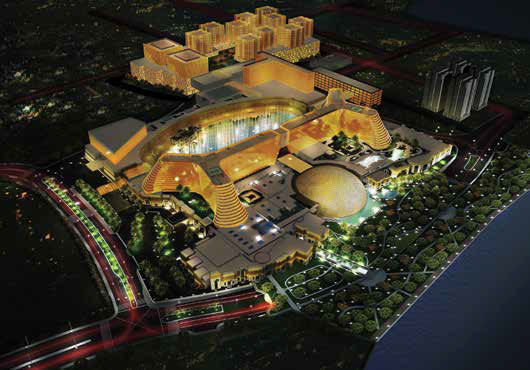
When is this expected to come about?
I don’t know. We certainly have had discussions with the regulators about it. We’ve had discussions internally at the highest levels within our company. There are some geopolitical things going on in the whole of Southeast Asia. That said, the whole of the world is looking for Chinese tourism to save them in terms of creating some revenues and some taxation. I think it’s a path that everyone’s sort of moving toward. It’s a question of timing really.
Solaire has targeted the Chinese high end with mixed results. Is that a concern?
I don’t know if I want to comment on the mistakes they made. I’d rather focus on how we’re aiming to do things, and how I think that’s the right way of doing things. They were a little one-dimensional when they opened. Not that many restaurants. One Chinese restaurant and one noodle joint in the casino. For Chinese, food is critical. You know this. And one restaurant’s just not going to cut it. There was very little retail. So people who took their wives or girlfriends, there was nothing for them to do. The spa didn’t open. So what are they going to do? They sit around and go, “Take me to Hong Kong.” or “Take me home, Daddy.” I don’t think they had a big network. We’re aiming on, focusing on Korea, Japan, China, Taiwan, Singapore, Malaysia, Thailand, Indonesia, Vietnam. We really want to have people with relationships in all of those markets and have a super-strong international marketing team. We’re absolutely gunning for that.
So junkets will play a big role?
Junkets are key. We’ve been talking with junkets for the six months I’ve been here. We want to get some feedback: We’ve been trying to build those relationships for more than 18 months, really, two years out. And I think with the junkets the relationship is key. The other stuff is going to fall into place. We’ve got 15% tax on junket tables. Now it’s 5%, but you pay the corporate tax, it works out the same. Macau is 39%. So we’re going to be able to offer better programs than you can in Macau. When the road infrastructure is completed, which is going to be before we open, it’s going to be fine. The big thing is, I expect, when Lawrence Ho opens his doors in Manila, he’s the son of Doctor Ho, who’s a legend in China, I think that’s going to change perceptions a little bit too. And people are going to go, “Hey, that’s a little more mainstream than I thought it was.” And Kelvin Tan’s done a fantastic job for Melco Crown. So I think the junkets are going to treat it a little more seriously. And if they like the experience then that helps everyone down here. You know, these guys are all trying to diversify internationally now. Sun City’s in something like 15 countries in 22 locations now. They’re always looking for opportunities abroad.
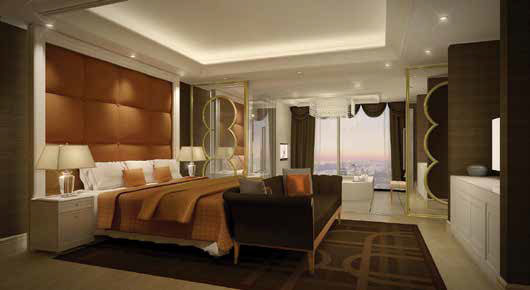
What of the doubts out there about Manila’s viability as a VIP destination?
What concerns the big junket operators, some of them, naturally, is safety. We’re covering initiatives on that not only in terms of our site but as part of the Entertainment City conglomerate of IRs. There are a number of initiatives that are under discussion with Solaire and City of Dreams. But we’re looking to be a onestop shop. That’s sort of our solution to that issue. We will pick up people, we’ll take them through the VIP line at the airport, pick them up in a limousine, we’ll bring them down to our resort. There’s no reason to go anywhere else but our resort while they stay with us. We’ll have a full entertainment offering, a wide array of food and beverage offerings. We’re going to have a fantastic spa facility. Retail, when Phase 2 opens, it’s going to be over 70,000 square meters. So we think we’ve got everything that people will need.
Are you looking at commission-based compensation on VIP or revenue share?
In terms of junket commission rates, with our tax structure we can certainly be more than competitive with Macau. We’d probably prefer revenue share. Reduces the volatility of the business. But we’re looking at all options. That’s something we’re going to have conversations about as well. We’ll be competitive with the programs, we’ll offer commission, we’ll offer revenue share, Hong Kong dollars. And I don’t know what the competition’s done, but City of Dreams certainly has a fantastic reputation, and I think that’s going to help when they open. But I think our portfolio of restaurants, suites, the room offering is amazing, the retail, the entertainment, the nightclub, the beach club, the spa—really, I’m quietly confident that our offering is going to surpass everything else that is going to be in the market. And I think ultimately when people have started coming into Manila they’re going to look at our property and, you know, I’ll let them decide where they prefer to stay. Locals are going to be a key element of our business model too. Not just for the revenue but for creating the excitement and the throb within the casino that everyone likes, even the high rollers. They don’t want to play in an empty, dull casino, they want to be somewhere where’s there’s action and things are going on. I think our casino’s going to provide a little more atmosphere than the others. And I think that the locals will gravitate toward that.

The strategy then is as much about transforming images or perceptions of Manila as anything else, which has been the goal of Entertainment City from the start.
It is. Absolutely. I mean, your perception of Manila from two years ago, my perception two years ago, I wouldn’t have gone there. And I went there in January last year, had a look, I’m like, “Hey, this isn’t that bad at all.” All the vendors and stuff used to go, “Oh, God, I hate that place!” They used to have to stay in Chinatown because the PAGCOR offices were there, and they never really went down to Makati, Greenbelt, Fort Bonifacio. It’s a nice place, it really is. I think more and more people are discovering it throughout Southeast Asia. Tourism is on the up and up. They’ve got challenges. The airport’s not a great experience, the oads aren’t great. But they’re working on those things. So by the time we open I think we’ll be well-positioned. The Philippines in terms of a true destination has a reputation for having beautiful beaches and friendly people. Probably not for great cuisine or fantastic entertainment shows or top-end hotels. But that’s all going to change. I think that as that changes everyone’s perception of the Philippines as a destination also is going to change. Greatly for the positive. And the Philippines government is behind this. The chairman, certainly part of his mission is to really put the Philippines on the map, bringing it up to the likes of Singapore and Macau. So I’m very positive on the outlook here.
For you at this point, five months in, what’s it been like?
I was working on an action plan probably for four or five months before I even started in terms of what are the key areas I needed to focus on, key people we needed to put in place, what’s our strategy going to be in the market, learn more about the property, all those kinds of things. So I think I hit the ground running in that regard. Obviously sitting down with you is one of those areas. Because we have a pretty bad image out there. We need more positive news. There are plenty of positive things about the project and about the chairman and his investments in the Philippines that people don’t even know about. He’s got a factory here for his Aruze company. There are game designers as well. He’s got a commitment to the Philippines regardless of the casino. He’s not just here to run a casino. He’s been employing hundreds of people for several years now. There have been a couple of speed bumps for the project along with the way. We’ve just won the case with [former development partner] Century Properties. That’s some really good news. There’s Reuters going off in their own direction, doing some crazy reporting that no one else is going to pick up because it’s a lunatic story. So there are those things that are happening as well, which you’ve got to kind of put aside to keep focused on the job. But I’ve really enjoyed it. I certainly don’t feel that I’ve got all the answers or I know exactly the next step and the next step and the next step. So I talk to people who have been mentors for me through my career. And I’ve found it really refreshing, actually, to work in a Japanese company. It’s very different. You certainly need to work on communications protocol, really build relationships with everyone, as you would generally. But I’ve found it very interesting. You know, Japan’s looking at opening up their industry. So I think it’s a good place to be. I also have a great team helping me, with a wealth of knowledge and experience, and a deep passion about the project, so I’m very lucky in that regard.
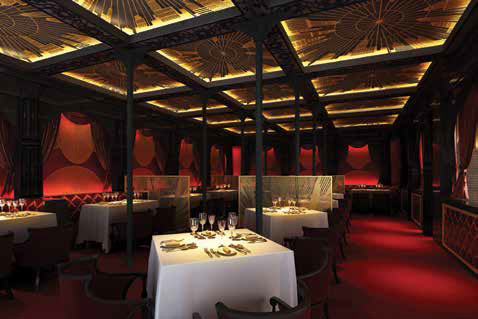
And a considerably broader remit for you as well. At City of Dreams you headed up machine gaming. Your responsibilities now encompass the entirety of casino operations and marketing too.
Yeah it’s a big umbrella. But an amazing breath of fresh air. It’s been just fantastic.
And quite an adjustment, one would imagine?
It’s a lot broader, no question. But in terms of the marketing side of things, I’ve always been interested in it. I looked after certain areas of it in New Zealand. I actually went to China 14 years ago to learn Mandarin so that I could get into the marketing side of the business. We did a lot of the work for marketing over at City of Dreams for a lot of the initiatives we kicked off. And the number of initiatives we created and kicked off there—room development, all the private rooms and so forth, we were heavily involved in all that. I don’t feel it’s something foreign or new to me at all. I’m completely enthused about the opportunity to mold it to a sort of a vision that I have. And to be accountable as well. I’m quite happy with that situation. I’ve always been waiting for this opportunity. So it’s really a dream job for me.
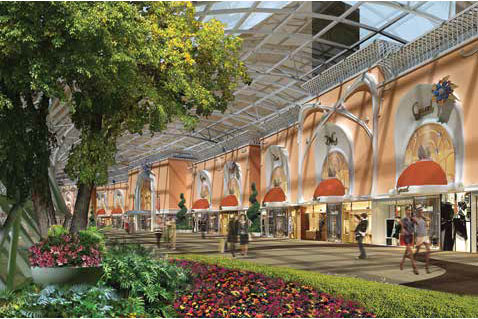
How important is your Macau background in that respect? We’re seeing a lot of experienced Macau management making the move to Entertainment City. What are the advantages in your view?
Macau is the mecca of gaming for the whole world. So Macau to that extent looks excellent on anyone’s resume. When I look out my door here at the executives we’ve got in place, 80-90% of them have Macau experience. Over half have Singapore experience. All of them have very deep Asian experience. Australasia as well. They have a broader background than people who have only worked in Macau. It’s a different market down here. So there are a lot of advantages to having that experience. In terms of the relationships with the junkets, how they roll, how credit is issued, all that kind of stuff, how to take care of the very high end of the Chinese clientele, what kind of food and beverage offering they want, how the rooms need to be, it’s invaluable to have that Macau experience. But I wouldn’t say it’s the be-all and end-all either. We’re also going to be appealing to Japanese, Korean, Singaporean, Malaysian customers. So people who have spent time in different jurisdictions and different countries really bring a lot of value to the table.
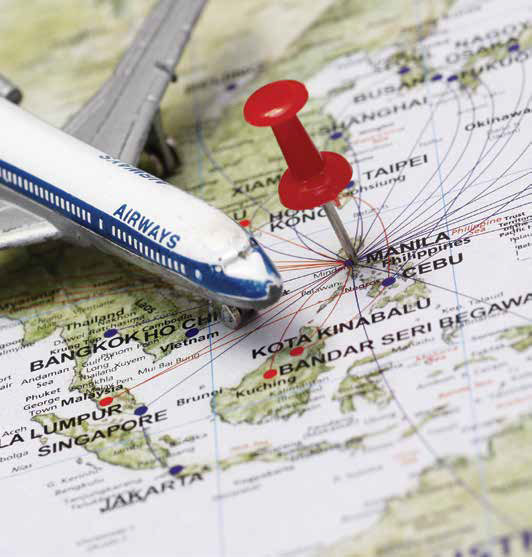
What about the takeaways from your own experience? What do you see as key?
I helped open Sands Macao, helped open Wynn Macau, helped open City of Dreams. I’ve worked for three of the big boys, I guess you could say. I’ve sat in the board rooms, I’ve been through strategy sessions, and there have been some tremendous lessons. So I think that’s given me a good grounding. In addition to that, I started in Macau in January 2004, I finished there in December 2013, so a few days short of doing 10 years. I’ve been through the boom times, I’ve been through the bust times, and I’ve been through the boom times again. And while it wasn’t necessarily, personally, all that pleasurable to go through the 2008-2009 period in Macau I think it rounded me out as a business person and gave me a much better take in terms of, OK, you always hope for the best, but you need to plan for the worst as well. How are we going to prepare for things, how are we going to respond? If we expect a certain segment of our business to be fine, and it isn’t, what’s the next plan, where do we move? In the boom times anyone can make money, right? But the bust times, that really challenged us, and I learned some tough lessons. It’s enabled me to come down here to a new market, to be able to learn about a new market, and to be able to lay out a pretty solid business plan for how we’re going to take more than our share of both the domestic market and the international sphere.
On the domestic marketing, what’s the plan? Obviously, you’re looking closely at Resorts World Manila and Solaire and how they’re developing their offering.
This is the part where you’ve got to do Manila in Manila, and I don’t want to talk too much about what we’re talking about and thinking about. Because it’s quite different from what the other guys are doing in that they’ve had the chance to get their offerings right. But locals are very much interested in SMS offers and things like that. Loyalty’s going to be a big thing for us. You’ve got to get the food offering right as well for the locals. Very pricesensitive. Transportation needs to be smooth for them. They need to be able to drop off if they have a driver, there needs to be car parking for people who drive in. In terms of the marketing side of things I think there’s a lot of people heading to Manila trying to do Macau in Manila, like people tried to do Vegas in Macau, and it took a long time for people to change their ideas and perceptions and thinking toward what would be more appropriate and appealing to the market that we’re operating in. I’m going to Manila with the mindset that I‘ve learned a lot in Macau, I’ve learned a lot about Chinese customers, I’ve learned a lot about gaming. But in terms of copying and pasting the Macau model in Manila, absolutely not. It’s a very different marketplace. The people and culture are very, very different. I don’t want to give away all our tricks, but I think that’s the key. It’s to look at the Filipino culture and the people and what appeals to them and tailor your offering accordingly.
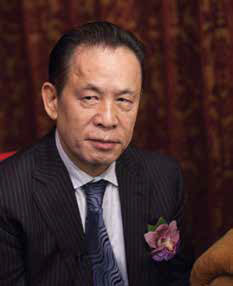
In that regard, what’s the thinking in terms of game mix and pricing?
The market determines the game mix. Really. Duo Fu Duo Cai from SHFL (now Bally) is doing great here, does great everywhere. You can’t try to stop the tide from coming in. Aristocrat does very well, IGT and WMS reasonably strong here as well, far stronger than they are in Macau. Electronic table games are taking off. When you put your game mix out there you might try a lot of stuff in the beginning. I know City of Dreams is going to do that. It’s a good strategy. And the market determines what you buy more of. It’s really that simple. You’ve got high occupancy, high utilization, good win per unit per day, you put more of that on the floor, you take off the rubbish stuff. I’m not concerned about that at all. The people are going to tell us what to buy.
The Philippines has been the subject of some conflicting forecasts lately, as you know. Resorts World Manila appeared to break the mold when it opened, unlocking what looked like a massive amount of untapped demand. Then Solaire came along, and its performance, at least in the early going, has skeptics wondering about the depth of the domestic market. At G2E Asia last month we heard some experts talking about saturation, highlevel industry executives among them. Then there’s PAGCOR, which has a more optimistic take looking out over the next five years or so. Where does Tiger come down on this?
Everyone always doubted the locals market in terms of supporting two properties. I don’t think it’s limitless, but the infrastructure’s going to geographically grow the market substantially; and when Entertainment City gets some momentum after City of Dreams opens, and then we open, there are three properties within rough proximity. People from Davao and the outer islands and places like that, they’re going to be making trips a lot more regularly, because there’s a lot more fun here. How big is the domestic market?
It won’t keep growing in a linear fashion with supply, I don’t think. Things are going to get very competitive. The reinvestment rates already at Resorts World and Solaire are very high even by Macau standards. I don’t want to go into too much detail in terms of our marketing strategy. We want to keep our cards pretty close to our chest until we actually get open. But we’re looking at not only being competitive with reinvestment, with points and all that kind of stuff, but certainly with how can we make the guest experience memorable every time they visit us, and in terms of personally engaging with the customer so that there’s an emotional connection with their experience here that they perhaps wouldn’t get at the other properties. And, again, when the infrastructure improves I think the domestic market will be bigger and bigger as well. The numbers at Solaire have been encouraging. They’ve slowly built up. Slots look really good. Their slots are competing with Resorts World now. It’s taken a while. But they’re pretty much neck and neck.
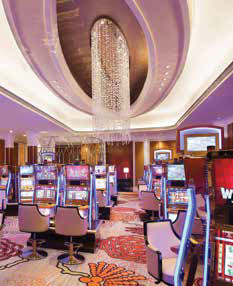
In terms of win?
Monthly revenue, yeah. Tables have been a little more challenging. The high roller and junket segments have been quite volatile. And low volumes can result in issues of high volatility because you don’t have the law of large numbers to even those things out. So, you know, it’s really a topsy-turvy ride. I don’t want to make too many analogies with Macau. What happened on Cotai, Venetian did pretty well even on its own, but when you started adding Four Seasons, City of Dreams, Galaxy, Sands Cotai Central, the critical mass just helped build the business out there. Everyone was scared of cannibalization every time a new property opened. You know, meetings in the war room and all that kind of carrying-on. It was really uncalled for. It was just solid organic growth. I think that’s what we’re going to have down here in Entertainment City when City of Dreams opens, and certainly when we open.
Build it and they will come.
It’s kind of like—and I don’t want to say that the business levels are the same as Macau— but it’s kind of like when they opened up the industry in Macau in 2002 and then Sands came in in 2004. Resorts World kicked off around the end of 2009, and they raised the bar for Manila and the Philippines. You go there now, having been to Singapore and Macau, and it’s not all that impressive a property. But it did what it was supposed to do. Like Sands did. But you walk into Sands now, and you kind of go, “This isn’t the best property in Macau anymore,” whereas it was for a couple of years. Solaire just opened, a very pretty property, but isolated and a little one-dimensional in terms of the offering there. It’s expanding now. It’s going to be a lot more well-rounded offering. Our chairman is putting a property together that is truly an integrated resort that’s going to stand shoulder to shoulder with anything in Asia or the world. He’s got 1,000 hotel rooms in Phase 1, a phenomenal portfolio, starts at 60 square meters—300 of the 1,000 rooms are at 60—then you go up into 100 square meters, then you’re into 200, 300, 450, 500, 600-square-meter suites in the tower. Then you’ve got the villas, which are over 1,000 square meters, 1,800 I think the biggest one is. An incredible portfolio of rooms. He’s got the dancing fountains, which is going to be an icon of the Philippines and Manila. We’ve got the domed Beach Club and Night Club, which no one has really done anywhere that I know of. Twenty-two restaurants at opening. He got a Michelin star in his first year at KO Dining in Hong Kong, so he knows food and beverage. We’re focused on that for the Asian customer. I don’t think it’s been done very well so far in Manila. So I think he’s going to nail food and beverage, and we’re going to work and focus very hard on that. I think we’re going to be the flagship of the area. It’s going to grow the domestic market. There are some infrastructure issues and some geopolitical issues that sort of have a bit of a cloud over things right now. But medium term, long term, there’s no question in my mind at all what’s going to happen. It’s really the short-term focus for us now, the business plan: how we’re going to execute, how we’re going to take more than our fair share.
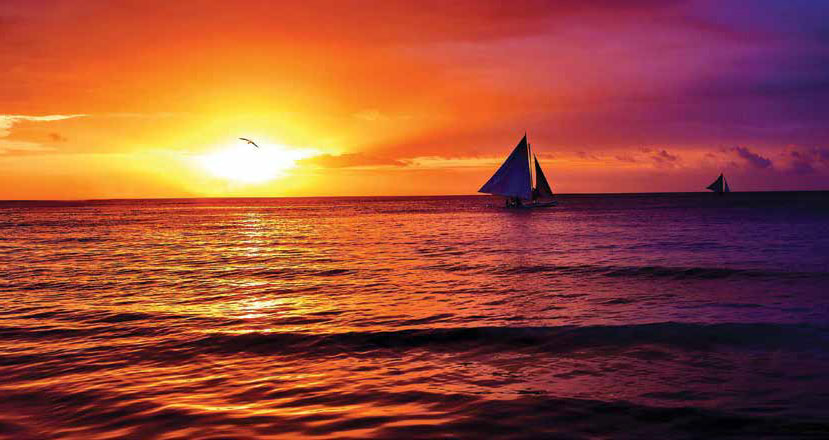
Infrastructure. You’ve mentioned it more than once, and of course it’s a big issue in Manila. How big in your view?
When the road infrastructure is completed, when the NLEX [North Luzon Expressway] and SLEX [South Luzon Expressway] are joined together, you’ve got Quezon City up north a little bit, it’s two hours to drive to Entertainment City right now, two hoursplus probably; when you join the NLEX and the SLEX, and you’ve got the Skyway coming over from there into Entertainment City, it’s less than an hour. Something like 6 or 8 million people up there. Now if you’re two-plus hours away from going and playing some slots for two or three hours, that’s a long drive, because you’ve got to come back as well. If it’s an hour away, well, I can barrel down there every second weekend, you know? It might be twice a year now, could be a twice a month after those roads get fixed.






